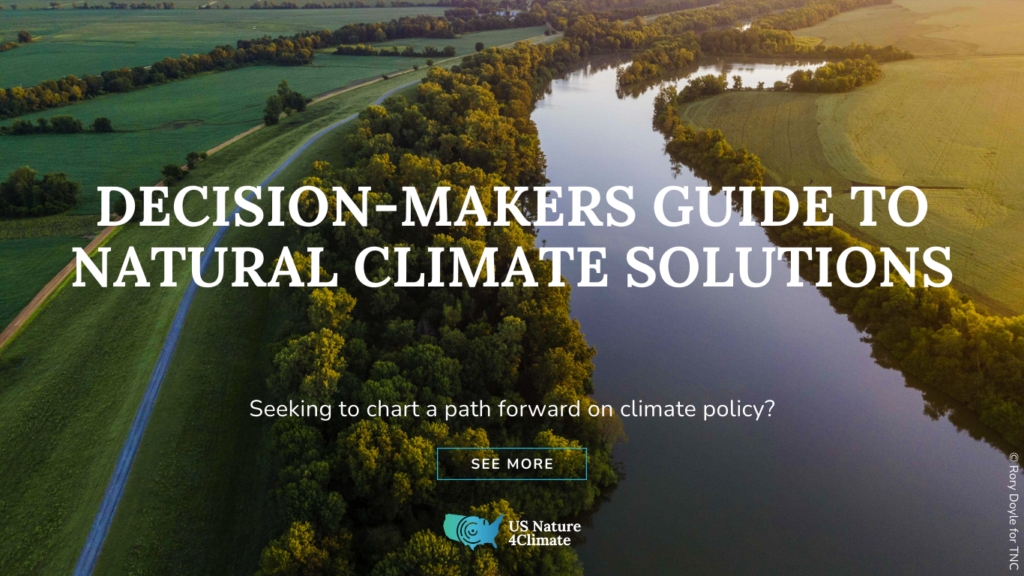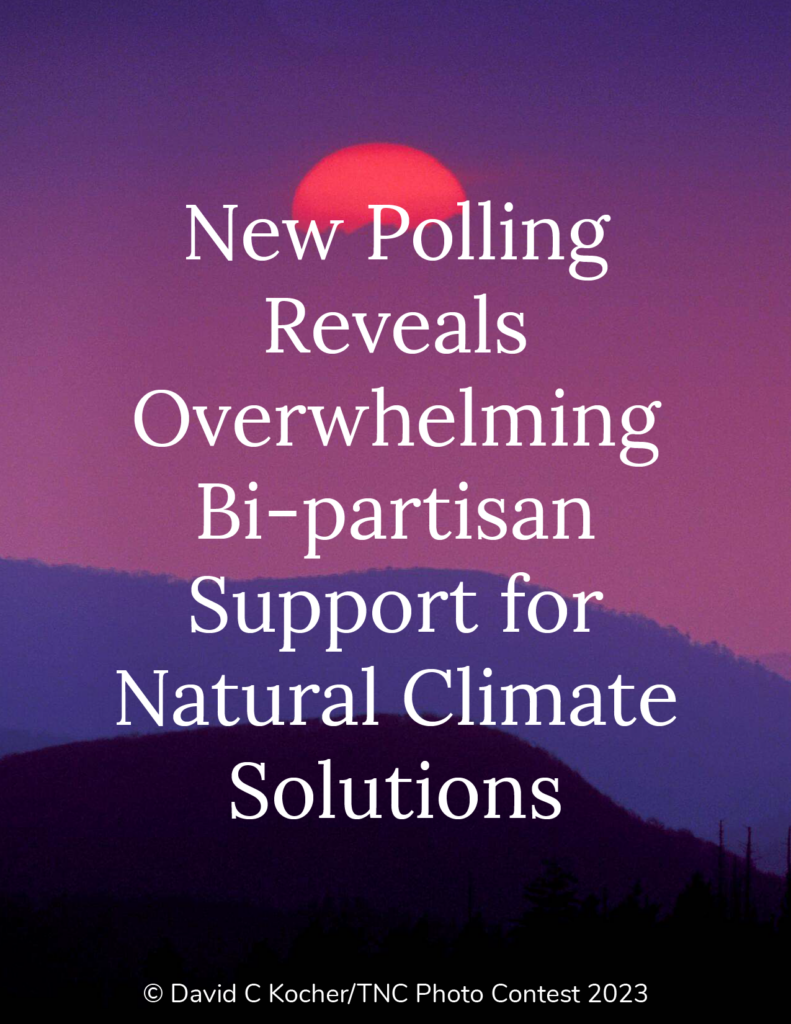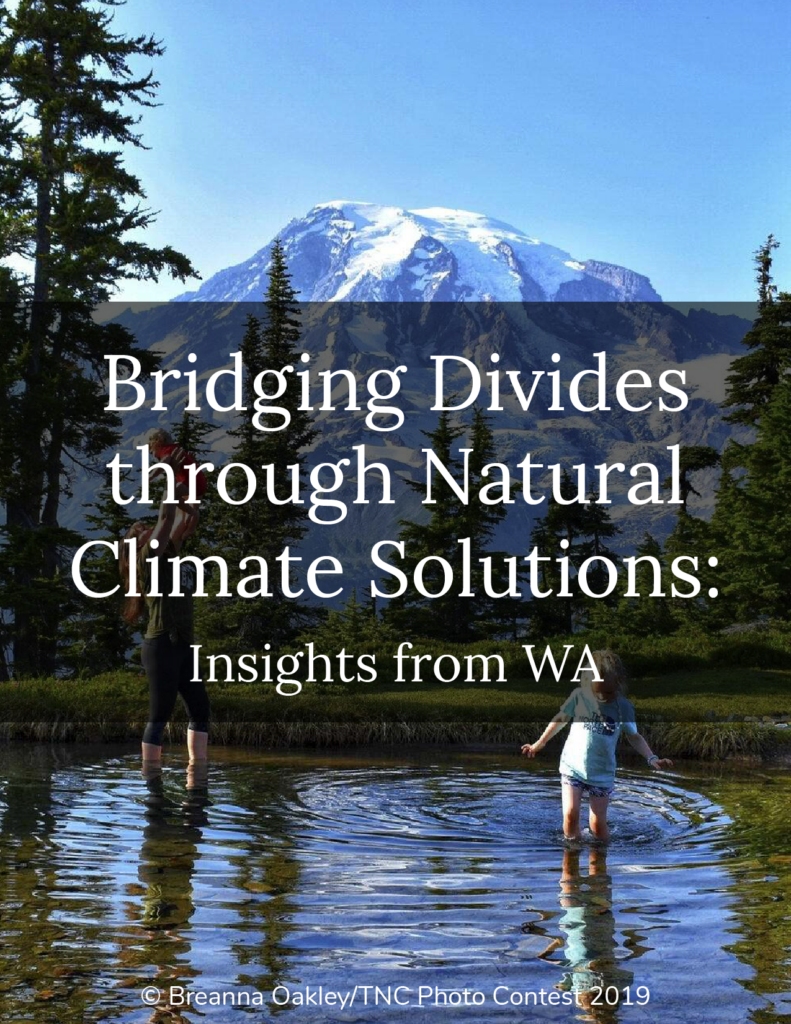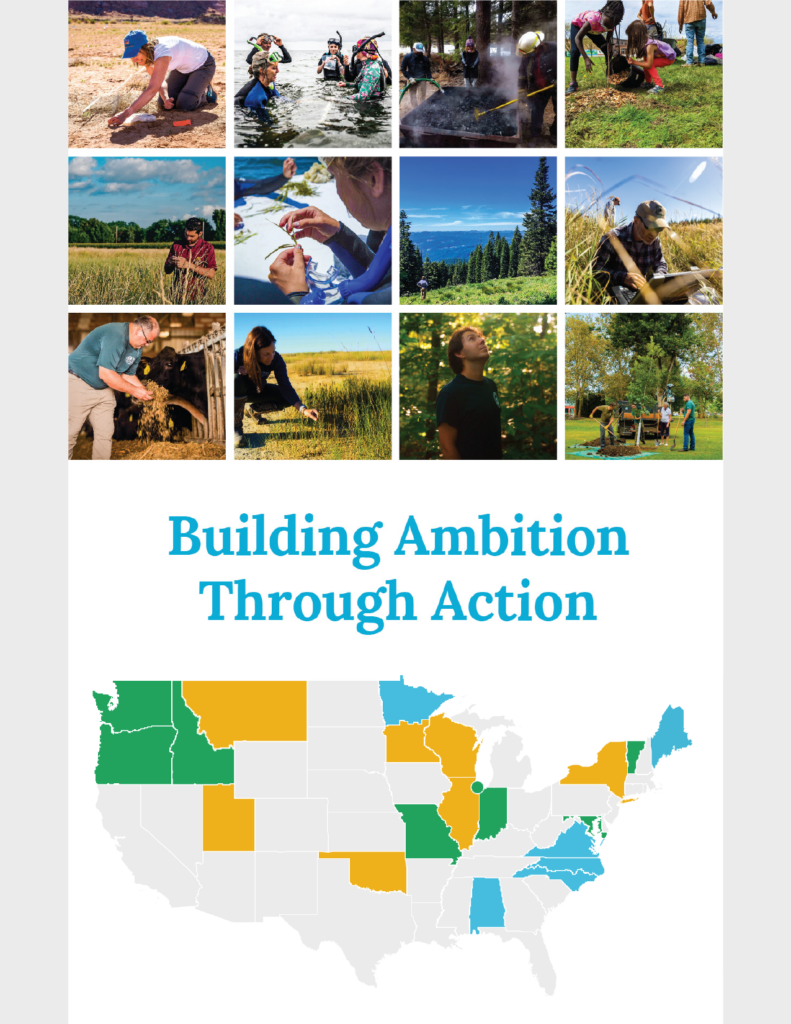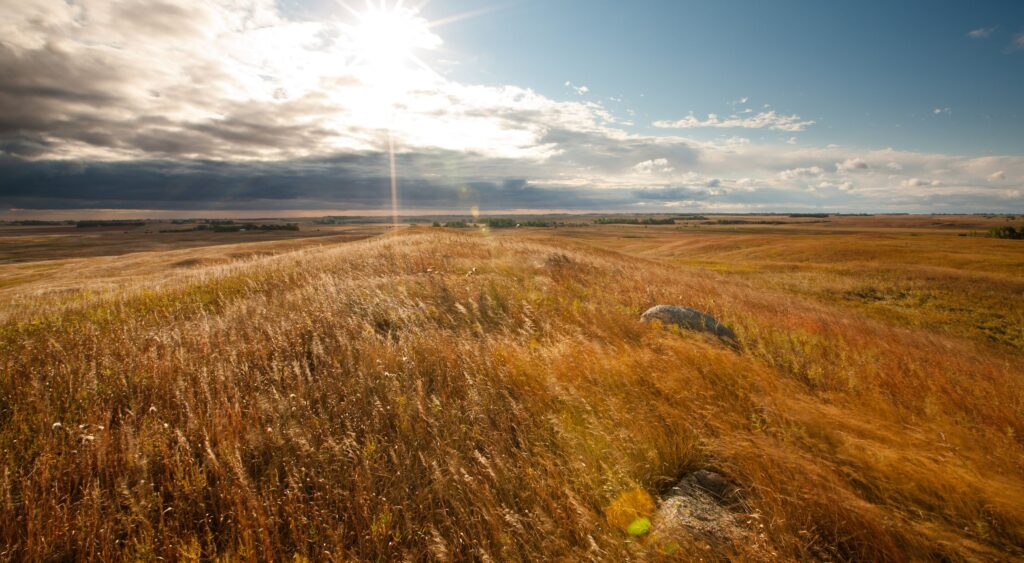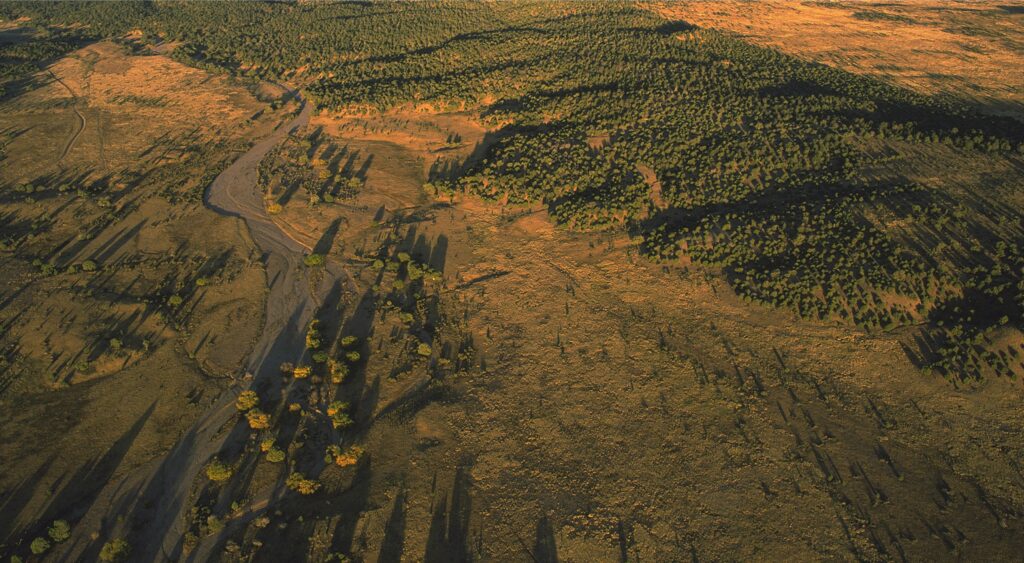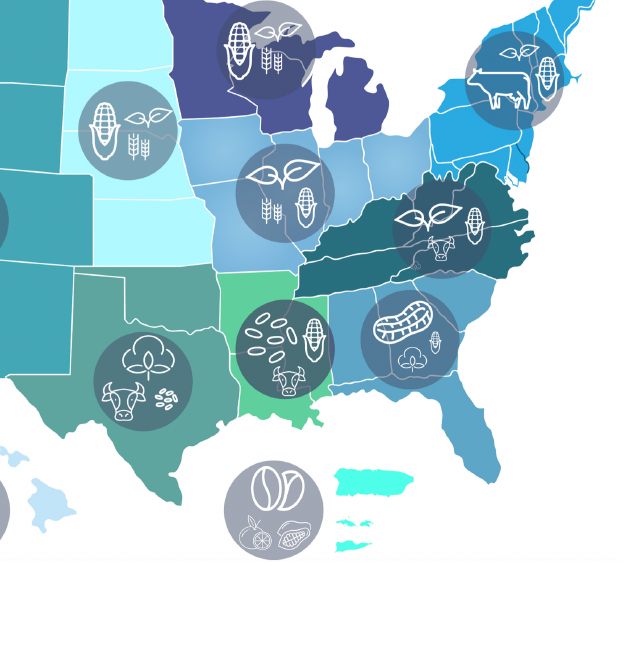In an era where political discourse is driven more by conflict than collaboration, there are few ideas that bring Americans together like Natural Climate Solutions (NCS). These solutions are actions that reduce emissions and increase carbon storage in forests, farms, grasslands, and wetlands, including efforts to employ techniques that retain carbon in soil, conserving and replanting forests, reducing the loss of natural areas, and preserving and restoring coastal wetlands.
Recent polling conducted by U.S. Nature4Climate demonstrates broad, bipartisan support for NCS. 94% of American voters favor advancing new policies and increased funding for implementation of Natural Climate Solutions, including 89% of Republicans, 94% of independents, and 99% of Democrats. Not only do voters favor Natural Climate Solutions, but they also have favorable views toward elected officials who support policies that advance Natural Climate Solutions. Indeed, 69% of voters – including 60% of Republicans, 59% of independents, and 86% of Democrats – would have a more favorable impression of their Member of Congress if they “voted to keep these financial incentives and programs for farmers and landowners to better manage their land to reduce its impact on the climate and conserve land and water,” while only 6% would have a less favorable impression.
There are few ideas that bring Americans together like Natural Climate Solutions: Recent polling shows that 94% of American voters favor advancing new policies and increased funding for implementation of Natural Climate Solutions, including 89% of Republicans, 94% of independents, and 99% of Democrats.
Source: Polling commissioned by U.S. Nature4Climate in June 2024.
Many Natural Climate Solutions practices have proven benefits for people, communities, and the environment. For example, research by the Soil Health Institute demonstrates that employing soil health management practices on farms can provide clear financial benefits for farmers. Actions that benefit soil health also helps safeguard America’s food supply by making farmland more resistant to drought and flooding. Increasing tree canopy in urban settings improves air quality, prevents deaths caused by extreme heat events and reduces heating and cooling bills. Replanting areas burned by wildfires helps improve drinking water quality, restore wildlife habitat, and bring back recreational areas. Coastal wetland restoration helps make coastal communities more resilient to hurricanes. Across the country, there are many examples of people and communities benefitting from implementation of Natural Climate Solutions.
Over the past few years, much has happened to advance Natural Climate Solutions, with billions of dollars dedicated to a wide range of actions, including climate-smart agriculture, wildfire management, coastal resilience, and community forestry programs. For example, The REPLANT Act, which garnered support from both the Trump and Biden Administrations and legislators from both parties, has helped increase nursery capacity and restore forests impacted by wildfire. Governors from both parties have supported state action to advance implementation of Natural Climate Solutions. And programs like the Partnerships for Climate-Smart Commodities have resulted in collaborations between corporations, non-profits, farmers and forest owners to develop and test new cutting-edge management practices that are good for the land, save money and create new markets for producers.
Many Natural Climate Solutions practices have proven benefits for people, communities, and the environment:
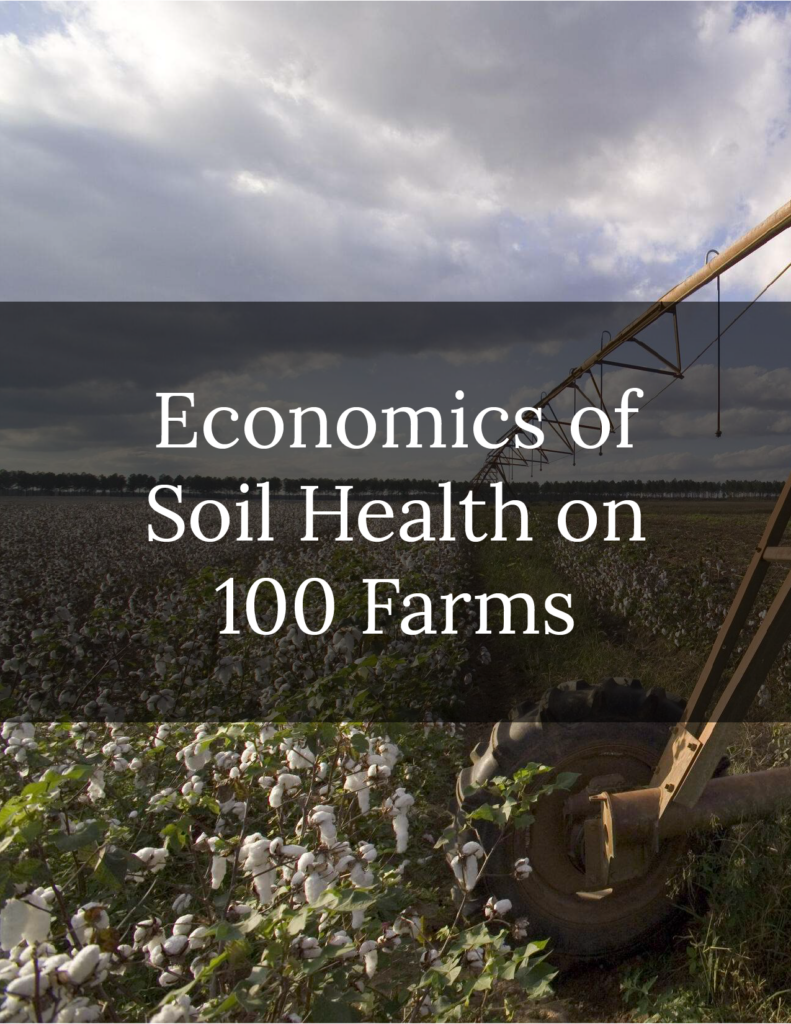
Research by the Soil Health Institute demonstrates that employing soil health management practices on farms can provide clear financial benefits for farmers.
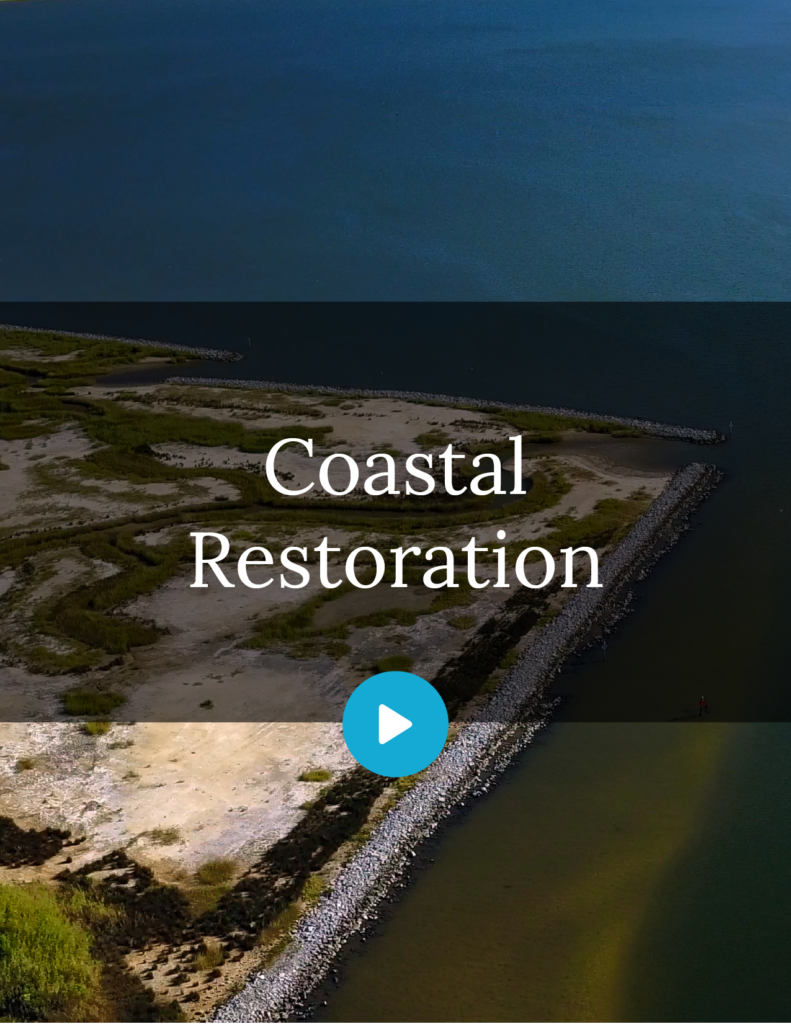
In this example from Alabama, see how coastal wetland restoration helps make coastal communities more resilient to hurricanes.
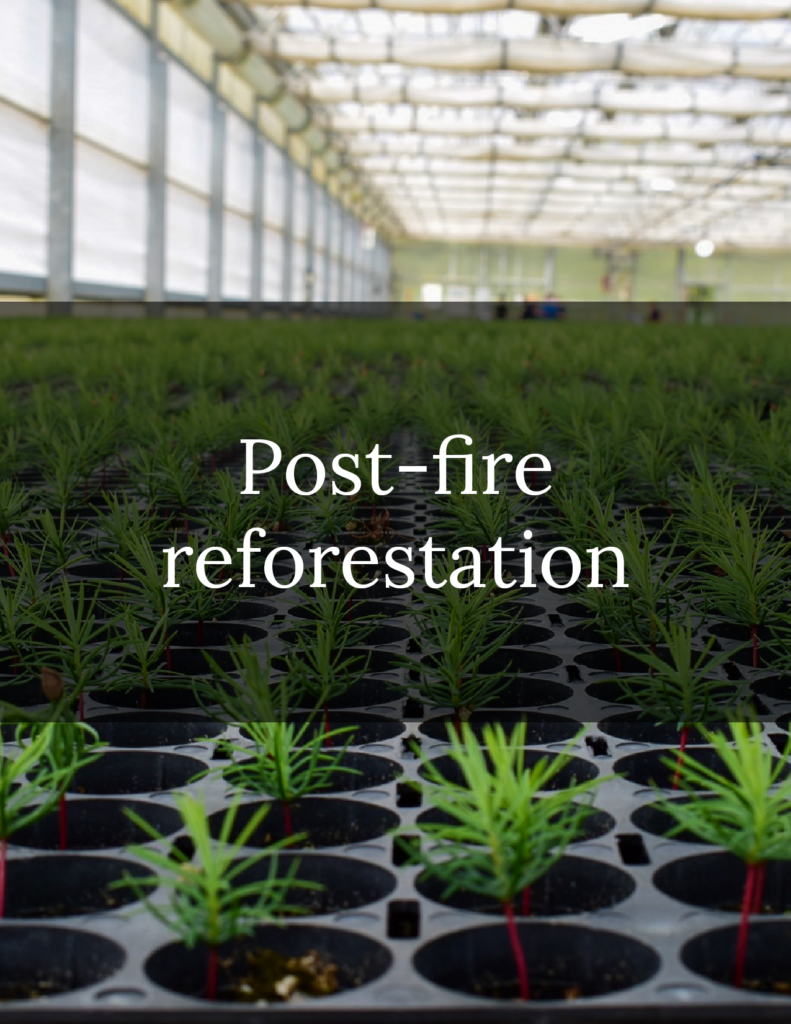
Replanting areas burned by wildfires helps improve drinking water quality, restore wildlife habitat, and bring back recreational areas. Read example from Idaho above.
Bipartisan support for past actions to advance Natural Climate Solutions provides the path forward for this momentum to continue. Both parties support for reforestation, efforts to strengthen nursery capacity and build the workforce necessary to expand reforestation will benefit rural economies. Likewise, continued support for managing wildfire risk through prescribed burning and ecologically appropriate thinning will safeguard communities across the country. Policymakers can help meet farmers’ interest in climate-smart agricultural practices by continuing robust support for Farm Bill conservation programs.
Policymakers can also increase the effectiveness of these strategies by supporting scientific advancements to further refine our understanding of the benefits of Natural Climate Solutions. Enhanced monitoring and verification technologies and investments in data collection will help ensure that investments in Natural Climate Solutions will have the most impact possible relative to their cost.
Backed by a diverse coalition, U.S. Nature4Climate provides expertise and a wide range of resources to help policymakers advance Natural Climate Solutions. Our Decision-Makers Guide to Natural Climate Solutions highlights the latest science and tools to guide NCS implementation. Our Building Ambition Through Action campaign highlights 20 success stories throughout the country, detailing their benefits through the experience of those implementing NCS on the ground. Our Science page provides the consensus view of the greenhouse gas mitigation potential of over 20 Natural Climate Solutions pathways. Finally, working with organizations like the Environmental & Energy Study Institute, we provide expert briefings to legislators and staff on policy approaches that can support increased implementation.
Momentum for Natural Climate Solutions is growing. There is a strong, data driven case for expanded implementation of Natural Climate Solutions, with clearly identified co-benefits and proven support among voters across party affiliations. Our coalition stands ready to work with policymakers to continue moving these solutions forward.

